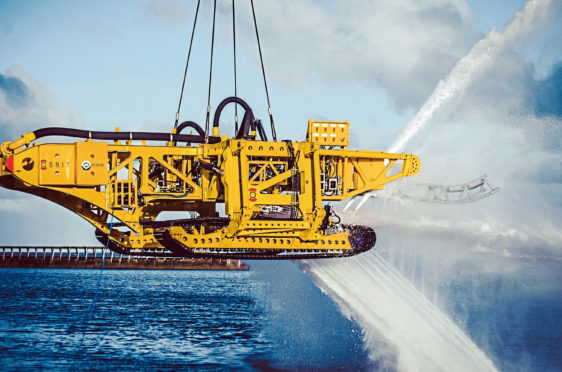A snapshot survey of the UK’s £7.8 billion subsea supply chain has revealed smaller firms in the underwater engineering industry are cautiously optimistic about the next six to 12 months.
Industry body Subsea UK questioned small and medium-sized enterprises (SMEs) within its 300-strong membership to find out how they were dealing with the fall-out from Covid-19.
Nearly 75% of respondents did not anticipate making redundancies in the near future and more than half (56%) were “fairly optimistic”
Despite the widespread bullishness over prospects, almost 23% of firms were making redundancies and only 3.5% actively recruiting.
The survey findings do not reveal how many jobs have been shed. A business activity review of the sector last year said it employed 45,000 people.
Subsea SMEs said their top three priorities were the health and well-being of employees, cash-flow and lack of visibility over project work and their order books.
Their target markets were unchanged as a result of the global pandemic. Europe remains a key market, followed by Gulf of Mexico, Asia Pacific and the Middle East.
While oil and gas is still the largest market for the subsea industry, diversification into other areas of underwater engineering is more important than ever.
Offshore renewables now account for nearly 25% of all subsea revenue (about £1.8bn) and income from aquaculture, defence and subsea mining is growing.
This was reinforced by firms saying they were most interested in receiving market intelligence on offshore wind and other marine renewable opportunities.
The rise of the webinar has been a popular development, with one-third of SMEs keen to attend more online events to gain market intelligence and share experiences.
Subsea UK chief executive Neil Gordon said: “While it’s too early to determine the full extent of the economic impact on the subsea industry, our latest findings are more encouraging than we anticipated.
“There have been major redundancy programmes across the tier one companies, although the situation among SMEs – who make up the bulk of the subsea supply chain – does not appear quite so gloomy.
“However, this cautious optimism must be put in context with the overall bleak outlook we are seeing.
“Given the fragility of subsea companies due to low margins, lack of resources, cash and investment and, in many cases, considerable debt as a result of the last protracted downturn, it’s vital that we do everything we can to protect the supply chain so that we are not constrained when it comes to delivering the green recovery.
“The subsea industry is nothing if not resilient and, once more, we must demonstrate the ingenuity and determination that got us through the last downturn in order to survive the impact of Covid-19.”
Subsea UK is rolling out a series of webinars with speakers from industry and economic development that will focus on the challenges identified. The webinars will centre around the support available and the initiatives being proposed by government and other organisations to provide support in key areas.
